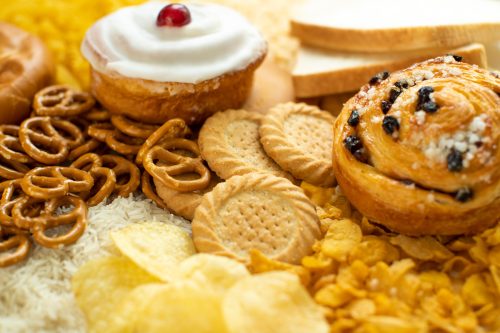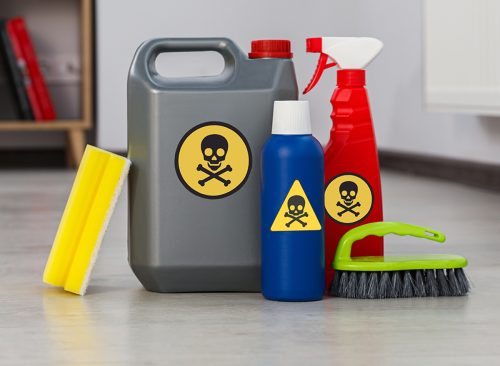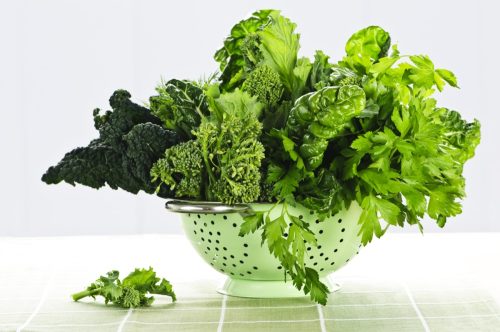11 Ways to Boost Your Testosterone Naturally

Men, it’s perfectly natural to want to boost your testosterone naturally. The critical hormone for male health influences everything from muscle mass and bone density to libido and mood. If one of those dips, flags or doesn’t come through as it did when you were younger, you may crave a boost. While synthetic solutions are available, they often come with unwanted side effects, leading many to explore natural alternatives.
That’s why we consulted with endocrinologists, who understand the hormonal pathways and can suggest natural enhancers of testosterone production; urologists, who deal directly with male reproductive health and its challenges; and nutritionists, who offer guidance on dietary choices that can influence hormonal balance. Here’s what they had to say about how to boost your testosterone naturally.
RELATED: 8 Best Ways to Strip Away Your Unhealthiest Belly Fat.
Exercise

“Research shows that testosterone levels rise for short periods of time after exercise — ranging from 15 minutes to one hour, depending on the man. Younger men get a bigger post-exercise boost,” explains Northwestern Medicine. “Testosterone levels also vary throughout the day; levels are typically higher in the morning and lower in the afternoon.”
“Walking or doing some type of movement exercise daily reduces inflammation, boosts sex drive and improves the blood flow,” says Yeral Patel, MD, a functional medicine physician in Newport Beach, California. “This small adjustment can make a big difference.”
“Exercise also can increase the output of natural endorphins, making one feel calm,” says Felice Gersh, MD, an OB/GYN and founder/director of the Integrative Medical Group in Irvine, California.
Best Life Tip: Aim to get 30 minutes of exercise most days of the week, including at least two sessions of strength training weekly.
Eat Dark Chocolate

Cacao is high in magnesium and flavonoid antioxidants, which can help boost testosterone. Additionally, “chocolate contains many mood-enhancing and energy-producing chemicals,” says Anna Cabeca, DO, an OB-GYN and anti-aging physician and author of The Hormone Fix. “It contains theobromine (a mood elevator), caffeine and sugar (a mood elevator and energy booster) and the endorphin Phenylethylamine (PEA) which produces an energy boost.”
Best Life Tip: Try a few squares (a 1 to 2 oz. serving) of dark chocolate for dessert.
RELATED: 101 Easy Ways to Be a (Much) Healthier Man.
Reduce Stress

“Chronic stress keeps testosterone low,” says Myles Spar, MD, MPH, an internal medicine physician and author of Optimal Men’s Health. “The best way to fix this is to learn how to manage stress so that the body is not always in fight-or-flight mode, feeling like you are under attack all the time.”
Best Life Tip: “Daily habits like journaling, breathwork, mindfulness practice, meditation, gentle yoga and even prayer have been shown to significantly lower the sympathetic nervous system overdrive state and create a sense of relaxation,” says Spar.
Get Enough Sleep

“Sleep is important. There have been several studies that show a lack of sleep negatively affects testosterone. So make sure you’re well-rested or you won’t be up for the task,” says Michael Ingber, MD, a specialist in female pelvic medicine and urology based in Denville, New Jersey.
Best Life Tip: Experts recommend seven to nine hours of sleep nightly for the optimal performance of your heart, brain, metabolism—and sex drive.
Lose Weight

“Overweight and obese patients have increased inflammation which causes hormone imbalance and thus, can cause low libido, low testosterone and low sex drive,” says Patel.
Best Life Tip: Stay in a healthy weight range with regular exercise and a balanced diet.
RELATED: 20 Easy Ways to Flatten Your Belly Fast, Says Top Nutritionist.
Avoid Processed Food

“Most processed foods contain hormone-altering chemicals that can wreak havoc on (among other things) your testosterone,” says Patel.
Best Life Tip: Instead of packaged foods, Patel recommends eating beets and spinach; lycopene-rich foods such as citrus and tomatoes; and foods high in flavonoids, such as dark chocolate, blueberries, strawberries and green tea.
RELATED: 20 Easiest and Most Effective Exercises on the Planet.
Eat Oysters and Avocados

The zinc in oysters can increase testosterone. And: “Oysters have been recognized for centuries as a classic aphrodisiac,” says Cabeca. “Oysters contain dopamine, a hormone known to increase libido. Oysters and most shellfish also contain arginine, an amino acid that the body uses to make nitric oxide. Nitric oxide will relax and expand your blood vessels, much like the erectile dysfunction drug Viagra, thereby increasing libido.” Avocados are high in vitamin B6, which helps increase hormone production and boost libido for both sexes, she adds.
Best Life Tip: Indulge in the occasional oyster dinner. Avocados can be a part of your daily menu—on salads, in smoothies, or as a side dish for lean protein.
Reduce Toxin Exposure

“Toxins are another stressor on our bodies that can impact hormone production and can bind to hormone receptors,” says Stephanie Gray, DNP, MS, founder of the Integrative Health and Hormone Clinic in Hiawatha, Iowa. “Work to remove toxic chemicals from your home and from your personal care products.”
Best Life Tip: One of the common toxins is plastics. “Plastic often contains bisphenol A (BPA), an endocrine disruptor that can have negative effects on our reproductive organs and hormones, specifically the breasts in females and prostate in males,” says Gray. “Some personal care products also contain parabens and phthalates (more endocrine disruptors), so read the labels and avoid products that simply list added ‘fragrance,’ since this catch-all term sometimes means hidden phthalates.”
Have Comprehensive Hormone Tests

“Too often patients see me stating, ‘My doctor already checked my hormones and told me they were normal’ when that’s not truly the case,” says Gray. “Maybe they had an FSH (menopause) marker checked but didn’t actually have sex hormone levels like estradiol, estrone, progesterone, and testosterone checked.”
Best Life Tip: “Beyond having the levels checked, find a hormone specialist who can properly interpret your hormone levels and formulate a game plan to improve them,” says Gray. “Just because levels register in the normal ‘range’ doesn’t mean they are optimal.”
RELATED: If You Want to Lose Weight, “Avoid These Foods Like the Plague,” Fitness Expert Says.
Eat Dark, Leafy Greens

“A diet high in green leafy vegetables, beets, and citrus fruits and melons is a great way to raise the production of testosterone,” says Gersh.
Best Life Tip: Are you getting enough? The Dietary Guidelines for Americans recommends eating 2 cups of fruits and 2 ½ cups of vegetables every day. (But more wouldn’t hurt.)
Try Supplements

Although it’s preferable to get your nutrients from food, if you feel you need supplementation, D-aspartic acid (a natural amino acid), zinc (commonly linked to reducted testosterone levels) and magnesium (which has helped athletes and sedentary men) have been shown to boost testosterone levels.
Best Life Tip: “Don’t forget a multivitamin, vitamin D and K, zinc, magnesium, omega-3, probiotics, B12, folate and a B complex,” says Gersh.
Best Life offers the most up-to-date information from top experts, new research, and health agencies, but our content is not meant to be a substitute for professional guidance. When it comes to the medication you’re taking or any other health questions you have, always consult your healthcare provider directly.